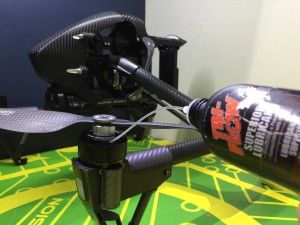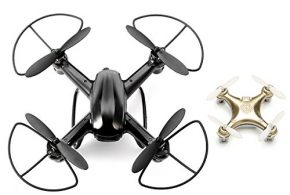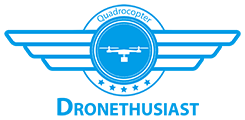Lynh Phan’s Tips: Drone Motor Lubricant, To Be or Not To Be?
Today’s Tip: Lubrication for your motors
Caution : this is a personal choice whether or not to use drone motor lubricant on your motors. I used to compete in RC speed helicopter racing where I would always lubricate the sealed bearings on my German made competition quality Kontronik Black Edition Pyro and Scorpion competition series motors which can cost up to $1000 USD each. If you decide to lubricate your motors, you are in for the long run and it’s not simply a once off event.
The i1 motor is a 6S motor capable of 350 – 420 KV. That’s 350to 420 revolution per Volt X 22.4 Volts. The high rpm will not only generate heat, it can act as a grinder for any ingested particles (sands, dirt etc) potentially damaging your magnets and in extreme circumstances – motor obstruction.
The correct lubrication will keep the shaft lubricated, reduces heat built up, enhance dynamic responses of your motor and definitely reduces the rotational friction.
I use the proven TRI FLOW lubricant. One small drop of this drone motor lubricant onto the motor shaft via the air hole and allow it to sit overnight. This will ensure both the top and bottom bearing are lubricated including the shaft.
Does it work?
I’ve been doing this every 10 flights for the last 12 months and my motors rotate smoother than “two blocks of butter”.
If you decide to use drone motor lubricant, you must use it periodically and you must use the right lubricant. Purely using oil will attracts more dirt to the motors and negates any protective effect.
Enjoy and happy lubricating. – Check out Lynh Phan’s Ultimate Tips Compliation here!
Lynh Phan
Shopping for the best drone under $100? Check it out.






what is your opinion on drilling small holes on the underside of a phantom 3 to oil the lower bearings? saw that some guys are doing this. really appreciate your tips and tricks thanks Sig
Best drone oil in existence is NanoMech. Period. Over 15 years of nano-research at the leading University of Arkansas nano-labs ($100 million of electron microscopy). This is a new nano-engineered, nano-scale macromolecular lubricant. Will revolutionize what lubricants are capable of.